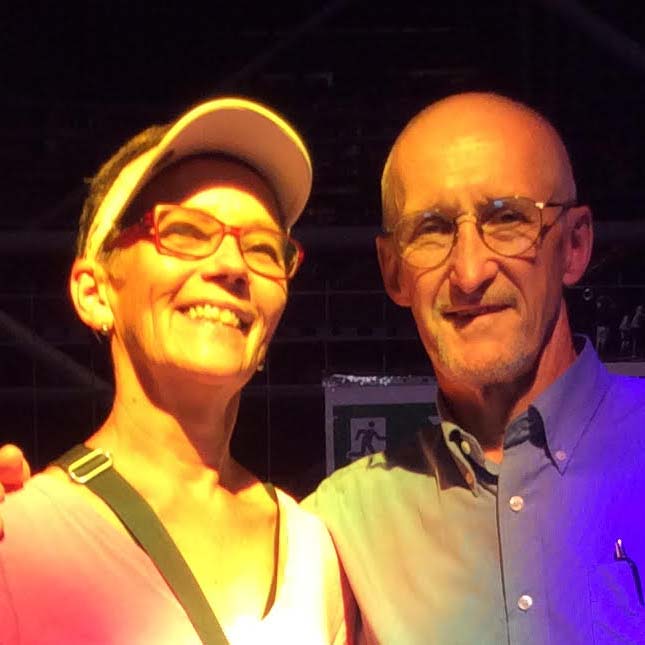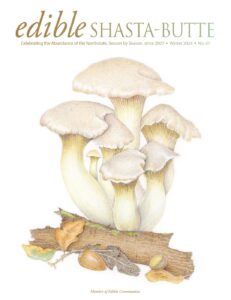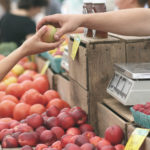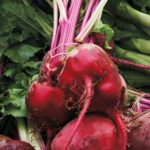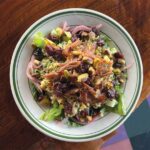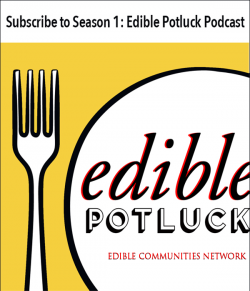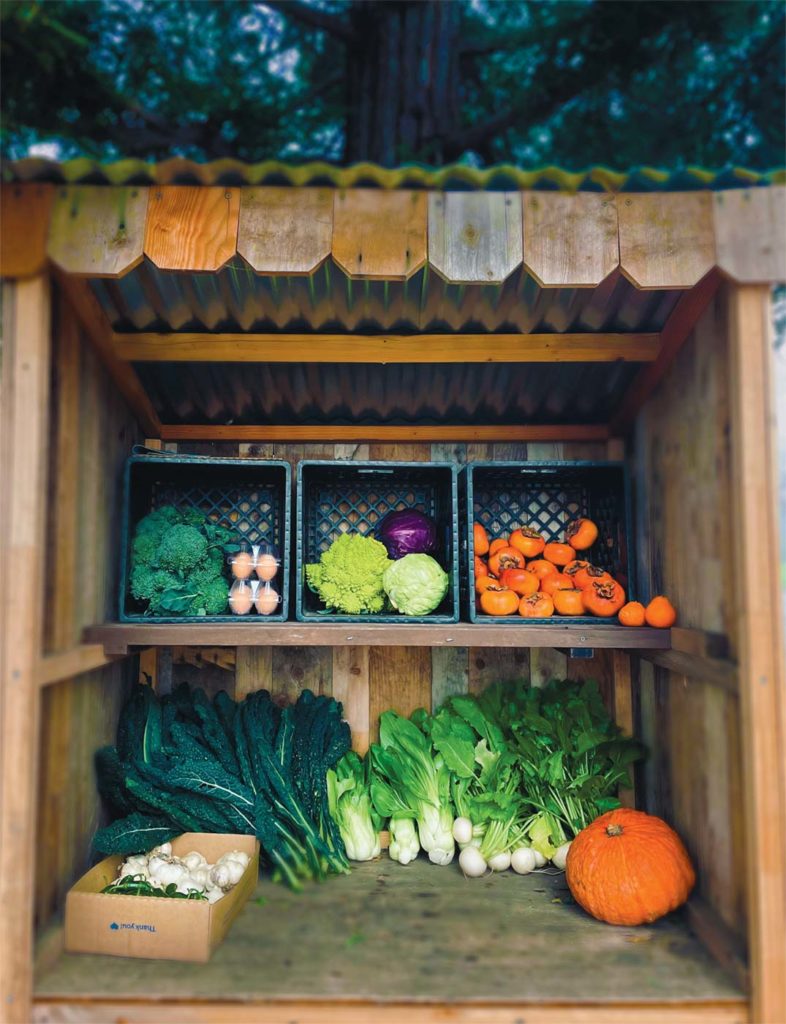
A grassroots local food network thrives in Butte County
Inheriting her family home in Chico presented Toni Zanella with both a problem and an opportunity: “I saw a lawn and thought about maintenance,” she says. “First, I didn’t want to mow it; second, I didn’t want to use the water for that; and third, it could be used to grow food for people.”
In 2020, Zanella discussed her property with Pamm Larry, whose efforts to organize the nonprofit Butte County Local Food Network were ramping up. Larry told Zanella about a young farmer who was looking for land, and their conversation evolved into the idea of creating a community demonstration garden behind Zanella’s home. Rather than a setup where individuals have their own little plots, Zanella was eager to use her one-third acre as a demonstration space and food forest: it became the Vecino Victory Garden.
Zanella’s generosity in sharing her space fits perfectly into the spirit of the Butte County Local Food Network. Larry is the driving force behind it, and her story is one of a small, committed group building a movement.
Worn down by fighting large corporations, Pamm Larry started thinking about happy ways to change the food system. . . . “I’m 65, and I want to make sure I can look in the mirror and say I’ve done all I can for the next generation.”

THE GARDEN BLITZ
Larry has worked on food issues since 2011, first focusing on legislation to require labels on genetically engineered food. She had been with the national Good Food Brigade, but after the Camp Fire in 2018, she turned to local efforts. Worn down by fighting large corporations, she “started thinking about happy ways to change the food system.” After reading about Milwaukee’s Victory Garden Initiative, a program through which over 5,000 gardens were planted across the city, she reached out to learn more. With guidance from gardeners in Milwaukee, Larry launched the Butte County Garden Blitz in 2020.
Obstacles and cancellations were common from the beginning, as the pandemic struck and wildfires blazed. Larry’s initial plan to hold the Blitz in fall and spring was forced back to spring only, taking place most recently over three weekends in March and April 2022. Each weekend event is in a different location—in Chico, on the Ridge, and in Oroville— with volunteers coming out to install raised-bed garden boxes for their neighbors.
“The Blitz is the project that brings the most smiles,” says Larry. “It’s our signature project for the community.” Purchased or given out as scholarships, the garden boxes come in two sizes and include a mix of veggie starts, herbs, and a companion plant for attracting pollinators. Zanella has helped to build the boxes and cut the hardware cloth that goes in the bottom to keep critters out. “We fill each box with vegetable starts in really good soil, top it with mulch, and give instructions on garden care,” she says. “Some people want to help and get their hands dirty or bring their families in; all are so thankful and happy.” The group installed 79 boxes this year, bringing their total to 248 gardens installed since 2020.
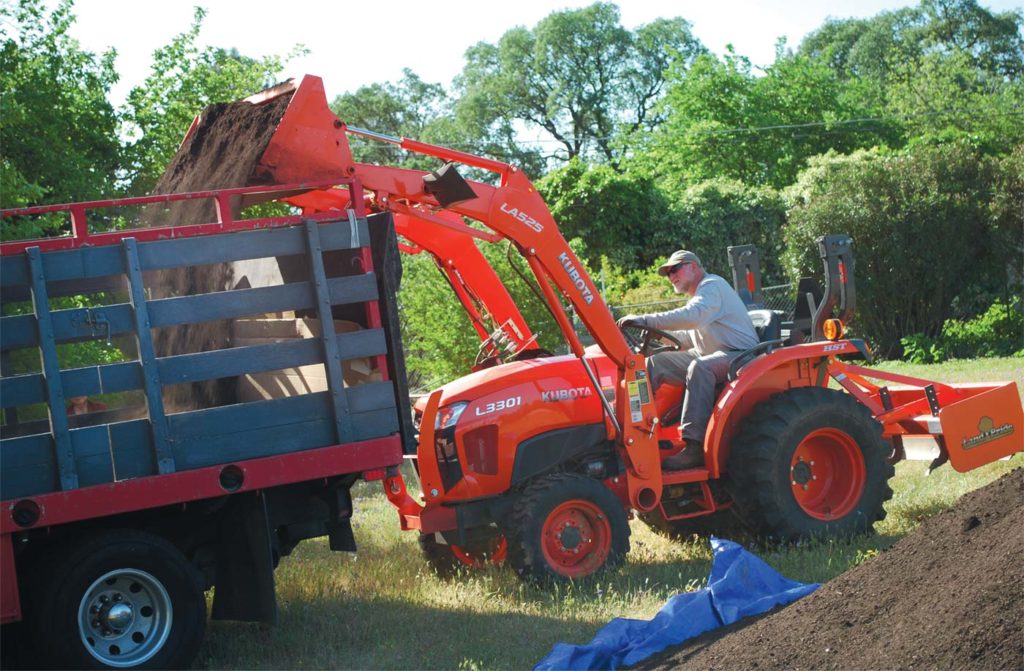
BRINGING DIVERSITY TO GARDEN EVENTS
Emmanuelle Sainte was both a Garden Blitz volunteer and a recipient of a garden box. Through the nonprofit GameAmp.org, she helps students to build skills and nurture their creativity by connecting them to community projects in the arts, social justice, and agriculture. “Wherever they feel their heart is bringing them, we try to connect them to people who are doing that in the community,” she explains. At the Garden Blitz, students helped out with planting, photography, and creating a video archive of the event. Sainte added an artistic flair as well, with African dance and drumming on the final planting day.
Sainte was thrilled with the garden box installed in her yard, filled with bell peppers, arugula, lettuce, tomatoes, cucumber, cilantro, spinach, and marigolds. She describes the Blitz as a lively gathering, as neighbors joined in and children ran and played. It was also important to her as an event that included the African-American community. “Two African- American gardeners shared so much knowledge,” she says. “It’s inspiring if we can get more people in our community involved. People of African and Hispanic descent, we need to touch back with the earth; that will heal us. It’s super important that we remember the history of African-American farming in Oroville and treasure it and teach it.”
Baba Ross-Walcott was one of the gardeners who worked in Sainte’s yard. “I’m one of the only African-American farmers in this area,” he says. “I stepped into the Garden Box Blitz because, for me, it’s important that we bring diversity and get more African-American people involved in growing our own food.”
Baba and his wife, Mharia, whose five-year-old grandson is a frequent helper in their garden, also noted the value of teaching children about plants. “Our message is to teach the young kids that their food came from the garden, not the refrigerator,” says Baba. Likewise, he noted that by bringing a ready-made garden box, people of all ages can see that it’s not difficult to grow food.
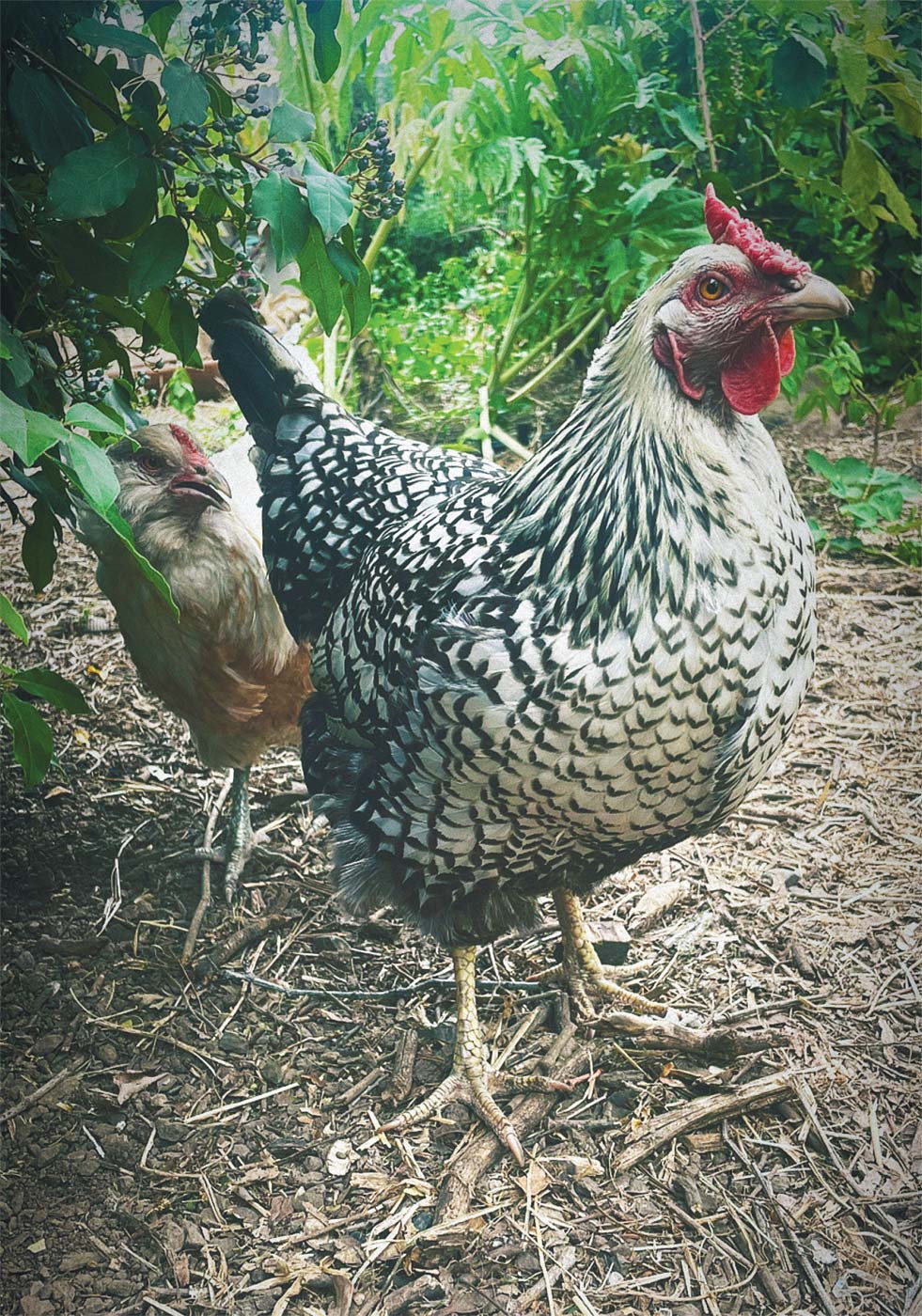
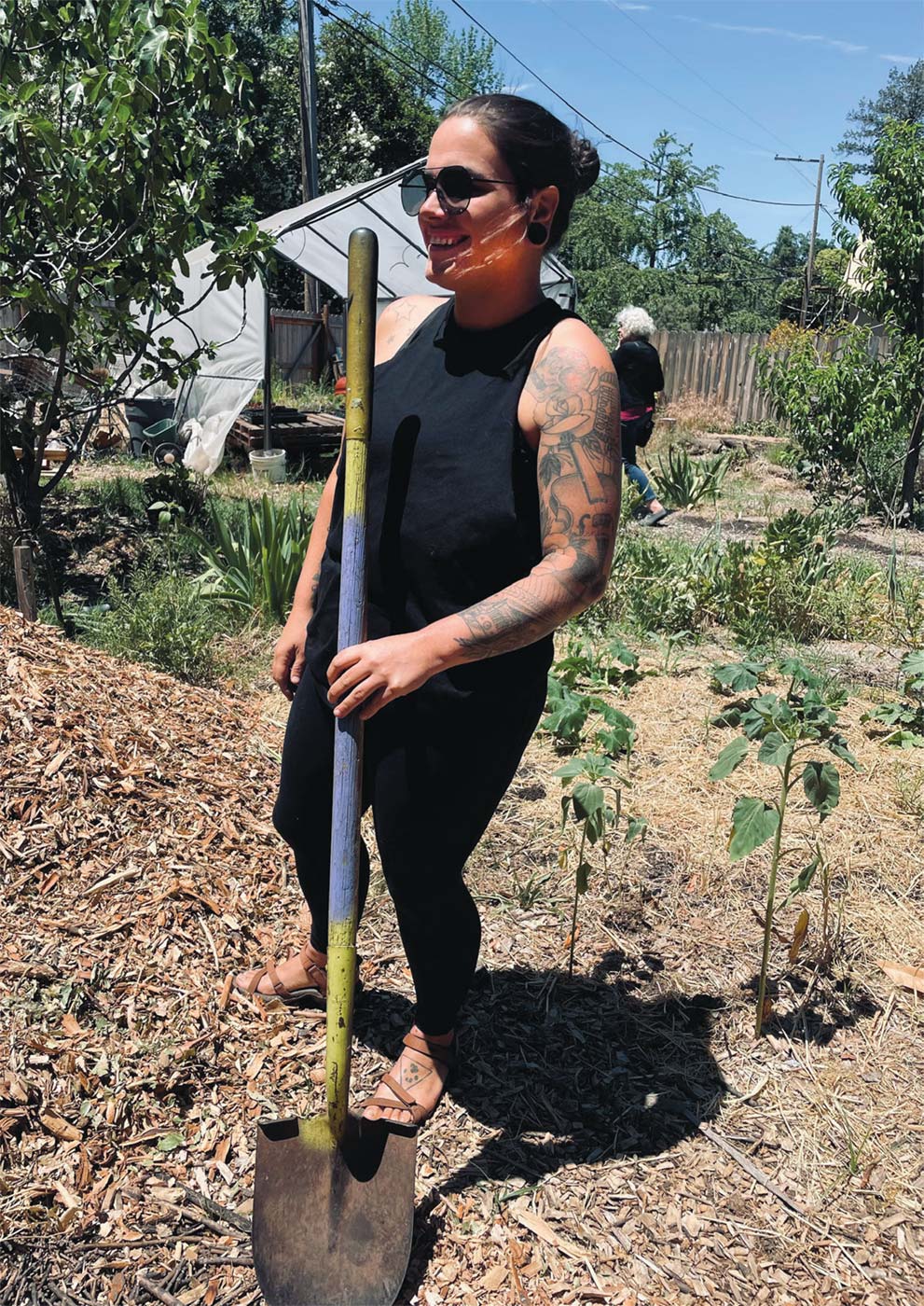
A BIT OF SOMETHING FOR EVERYONE
While the Garden Blitz brings a burst of activity in the spring, the Vecino Victory Garden is slow and steady yearround. It opens on Sunday mornings, when volunteers show up to sort seed, plant, weed, or move mulch. The garden’s bounty is shared with volunteers and at a “Free the Food” stand, where residents can take what they need.
“There’s a bit of something for everyone,” says garden manager Amy Roseman. “Whether you have experience with plants, or even if you just like to eat tomatoes but have no idea what they look like on the actual plant, the intention behind a community garden is to make space for all different levels. By cultivating a community and sharing ideas and skills, we grow and become resilient.”
Roseman was working as a med tech when she met Pamm Larry. “Pamm opened the portal to a whole new world for me,” says Roseman, an ambitious home gardener who started as a volunteer and later joined the Local Food Network’s board. She also supervises Vecino Community Composting, which is located at the Vecino garden site. Residents bring their food scraps in five-gallon buckets to be turned into compost to use at home, and Roseman leads workshops on the how and whys of composting. Last year, about twenty households used the composting system regularly, a number that has now doubled to forty.
More projects are in the works at the Vecino garden: The Eat Your Lawn program encourages people to replace their lawns with permaculture food forests. The Little Pollinators will be a children’s garden, and Roseman is also pondering an expansion of the compost exchange out to local farmers’ markets. Zanella, who is also a Local Food Network board member, envisions an outdoor kitchen for hosting cooking demos using food from the garden.
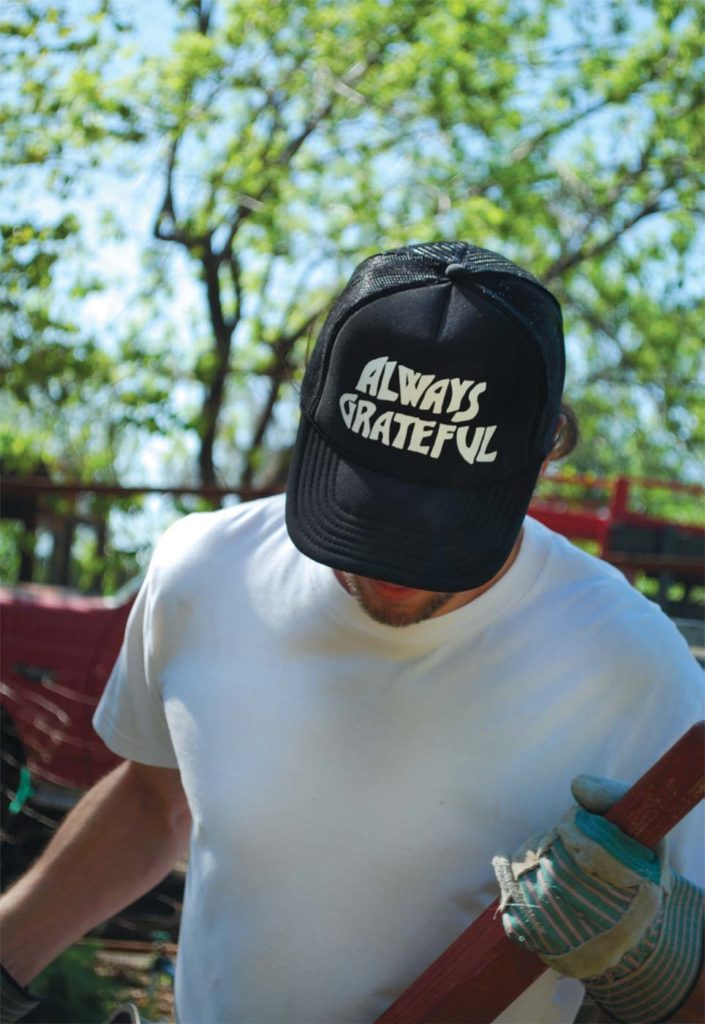
SHARING THE BOUNTY
A bright yellow van painted with fruits and veggies is the Local Food Network’s MarketMobile, which brings produce purchased from local farms out to Magalia Community Park and the Dome Store in Oroville on weekends. The goal is to offer fresh produce, some at no cost through an “angel” program, in areas that are food deserts and have been impacted by wildfires. Larry has raised funds for the truck, the angel program, garden supplies, and other needs through partnerships with foundations, funds, individuals, and local businesses.
A garden outreach project, Save Our Seeds, popped up when seed libraries closed due to COVID. Roseman and other gardeners place packets containing organic seeds along with instructions into twenty-three tiny libraries around town.
Meanwhile, Pamm Larry continues to expand the Local Food Network, collaborating with the Butte County Office of Education on a project to teach young people to be food literate and to grow, cook, and preserve food. “I’m 65, and I want to make sure I can look in the mirror and say I’ve done all I can for the next generation,” she says. “It’s my job and my passion.”
The Network offers these and other ways to engage with the local food system. Its website bclocalfood.org and active Facebook page detail its initiatives and invite locals to join in its work and its play.
Rachel Trachten writes about local food in connection to social justice, education, business, and the environment. View her stories at racheltrachten.contently.com.

